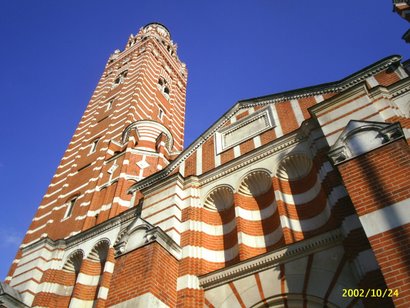The Loneliness of the Long Distance Administrator

Octavo Kalendas Ianuarii, crescenti Luna, Innumeris transactis sæculis a creatione mundi, quando in principio Deus creavit cælum et terram et hominem formavit ad imaginem suam; permultis etiam sæculis, ex quo post diluvium Altissimus in nubibus arcum posuerat, signum fœderis et pacis; a migratione Abrahæ, patris nostri in fide, de Ur Chaldæorum sæculo vigesimo primo; ab egressu populi Israel de Ægypto, Moyse duce, sæculo decimo tertio; ab unctione David in regem, anno circiter millesimo, hebdomada sexagesima quinta, iuxta Danielis prophetiam; Olympiade centesima nonagesima quarta; ab Urbe condita anno septingentesimo quinquagesimo secundo; anno imperii Cæsaris Octaviani Augusti quadragesimo secundo; toto Orbe in pace composito, Iesus Christus, æternus Deus æternique Patris Filius, mundum volens adventu suo piissimo consecrare, de Spiritu Sancto conceptus, novemque post conceptionem decursis mensibus, in Bethlehem Iudæ nascitur ex Maria Virgine factus homo: Navitas Domini nostri Iesu Christi secundum carnem.
Today, the twenty-fifth of December, under a waxing moon, unknown ages from the time when God created the heavens and the earth and then formed man and woman in his own image. Several thousand years after the flood, when God made the rainbow shine forth as a sign of the covenant and of peace. Twenty-one centuries from the time when Abraham, our father in faith, set our from Ur of the Chaldees; thirteen centuries after Moses led the people of Israel out of Egypt; about one thousand years from the anointing of David as king; in the sixty-fifth week according to the prophect of Daniel. In the one hundred and ninety fourth Olympiad; the seven hundred and fifty second year from the foundation of the city of Rome. The forty-second year of the reign of Octavian Augustus; the whole world being at peace, Jesus Christ, eternal God and Son of the eternal Father, desiring to sanctify the world by his merciful coming, being conceived by the Holy Spirit, and nine months having passed since his conception, was born in Bethlehem of Judea of the Virgin Mary. Today is the nativity of our Lord Jesus Christ according to the flesh.

2 comments:
Many congratulations on your Christmas Proclamation: all tongue twisters were beautifully sung with a suitably Italian lilt! The ascent to scale degree 8 towards the end was particularly thrilling! The whole service was a wonderful occasion; thank you for all your hard work.
A very happy and blessed Christmas to you and all the Cathedral Chaplains.
... and it sounded effortless!
There are so many resonances in that text, encompassing the Jewish, Greek and Roman sense of history, of time and place. When one considers that God is the eternal "I Am" this text (for me at least) captures in a very unique way within the liturgy that God who is timeless submitted himself to a time and a place, circumscribed by (fallible) human calendars and laws.
One leaves the cathedral with an overwhelming sense both of the reality and the great mystery of the incarnation. Well, I did at least!
A very happy Christmas to you Father and to all the Chaplains.
Post a Comment